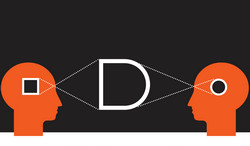What we think we see: how expectation affects perception
Predictive coding, a theory from cognitive psychology, posits that perception results from the brain's inferences about sensory signals. While generally well supported, the framework does not foretell relations between perceptual predictions and conscious content. The EU-funded EXPECT_CONSCIOUS (When and how do expectations affect conscious perception?) attempted to answer the title question. In particular, whether expected stimuli gain easier access to consciousness. The study determined that expectations affect flash suppression. When people expect to see a certain object, the item enters conscious awareness more rapidly than if it were unexpected or neutral. Unexpected objects also gain slower access to consciousness than neutral items. The investigation concluded that a hierarchy exists regarding entry to consciousness, with expected objects first, followed by neutral and then unexpected objects. Controlled experiments excluded certain alternative explanations. Examples included the possibilities that subjects were more likely to respond to an expected object, or that attentional strategies may change perception. Further experiments addressed the relation between expectation and recent memory. As memory deteriorates following an event, the influence of expectation increases. Over periods of seconds or less, memory becomes less objective and more an expression of preferences. This finding has implications for understanding how bias colours memory, such as in eyewitness accounts. The research yielded one journal publication and one conference presentation. EXPECT_CONSCIOUS explained how expectations affect both perception and memory, thereby contributing to cognitive theory. Applications concern psychological situations involving quick reaction times and cases where recollection could be biased.



